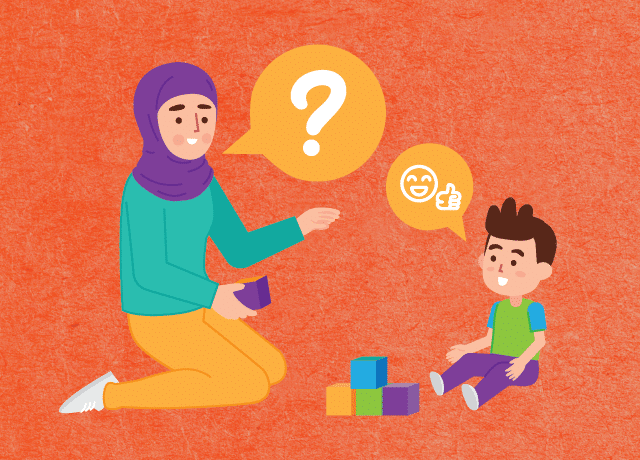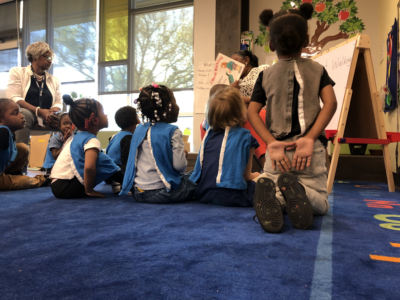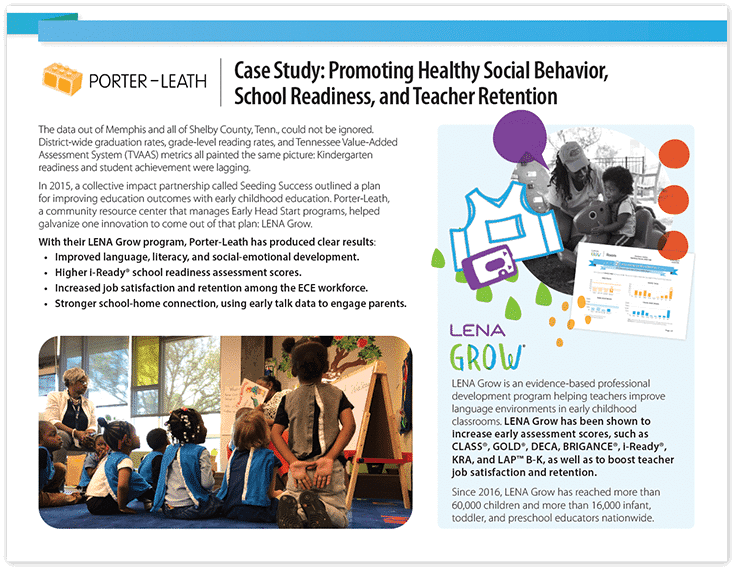When a preschool-aged child shows healthy social behaviors, it’s among the surest signs they’re ready to start kindergarten strong. However, that social-emotional development doesn’t just happen. It takes responsive relationships, built on solid language development and lots and lots of positive interactions.
One community resource center in Memphis, Tenn., wanted to make sure their Early Head Start classrooms were brimming with those positive interactions. To accomplish that, they focused on putting teachers on the cutting edge, helping them understand the latest science about what makes young minds tick. Why, for instance, does a simple verbal exchange, or conversational turn, bear so greatly on a child’s development?
It was in 2019 that Porter-Leath’s Early Head Start educators first participated in an innovative professional development program called LENA Grow. With LENA Grow, they could access data on:
-
- How much adult-child interaction they were nurturing in their classroom.
- At what times of the day they were and were not doing it.
- Which children were getting the most interaction, and which were most in need of more.
Five years later, the program is still going strong. Porter-Leath’s leadership aims to bring LENA Grow to all of its 300 classrooms in the Next Memphis network, and for teachers to participate multiple times.
“The data is telling us that every child needs to be in a classroom where a teacher goes through LENA Grow,” said Dr. Kelley Corbin, Vice President of Early Childhood Services at Porter-Leath. “Not only are we intervening on academics, but also the behavioral support in the classroom, and we know they go hand-in-hand.”
So, what exactly is the data telling us? For one, we know that LENA Grow has shown positive benefits around teacher retention at Porter-Leath. What about the direct benefits for the children themselves?
Evidence of Accelerated Social-Emotional Development
Widely used in early childhood education settings, the Learning Accomplishment Profile™: Birth-to-Kindergarten (LAP™ B-K) is an assessment tool that measures young children’s progress toward kindergarten readiness.
At Porter-Leath, researchers asked whether participating in LENA Grow may help increase children’s LAP B-K scores, particularly in the domain of social-emotional development.
The answers they arrived at were very encouraging, showing a clear link between LENA Grow participation and accelerated social-emotional skill-building.
During the study, the LAP B-K assessment was administered several times over the course of the school year, with the first coming in the early fall of 2022 and the last coming in late spring. Scores were calculated using the developmental quotient (DQ), a measure of how a child performs on an assessment compared with their actual, or chronological, age.
- Comparing assessments conducted before and after a single five-week LENA Grow sequence, children saw statistically significant increases in their social-emotional scores (+6.2).
- Those children also saw statistically significant increases (+18.5) between the beginning and end of the school year.
- Children who participated in more than one five-week LENA Grow sequence over the course of the year saw larger gains (+33.3), suggesting an added benefit of revisiting the LENA Grow program throughout the year.
- A control group, made up of children in Porter-Leath Early Head Start classrooms that did not participate in LENA Grow, saw more modest increases (+16.0).
- 83% of children in LENA Grow classrooms saw an increase in social-emotional DQ. 100% of children who participated in more than one LENA Grow sequence saw an increase.
Language Development, Cognition, and Self-Help Scores Also Increased
In addition to social-emotional development, the LAP B-K assesses a child’s language, cognition, and self-help skills. LENA Grow also helped move the needle in these areas of development, particularly for children whose first LAP B-K scores put them below age expectations.
- Between the beginning and end of the school year, these children saw increases in all three areas, with statistically significant increases in language and self-help.
- In language, cognition, and self-help, children in LENA Grow classrooms saw greater positive changes than children in the control group. The differences were statistically significant in the areas of language development and self-help.
“These results are very strong, adding to our evidence-based findings that LENA Grow has positive benefits for children’s social-emotional, language, and cognitive development,” said Dr. Jill Gilkerson, Chief Research and Evaluation Officer at LENA. “Combined with previous findings about increased teacher retention and anecdotal evidence about a reduction in challenging behaviors, these LAP B-K numbers show the power of LENA Grow to make a big difference at scale.”
One other result worth noting: Children who experienced greater gains in conversational turns tended to see greater gains in language development.
Why is this important? It hints at an underlying reason why children in LENA Grow classrooms saw such statistically significant gains in LAP B-K scores. It may be because of the conversational turns they experienced. A child needs responsive relationships to grow, and responsive relationships can’t happen without positive interactions. Or, as Larissa Fullilove, a social-emotional learning instructional coach at Porter-Leath, put it on a recent webinar: “Language builds relationships, and relationships build language.”
A Case Study About Early Childhood Innovation
As Memphis’s first Early Head Start grantee, Porter-Leath is at the forefront of innovative approaches to child development. Their LENA Grow program has delivered wonderful results:
- 2x higher retention rate for teachers participating in LENA Grow.
- 77% increase in conversational turns for children who needed it most.
- Significant improvements in language and social-emotional development.
Discover how Porter-Leath and LENA worked together to achieve these impressive outcomes!








